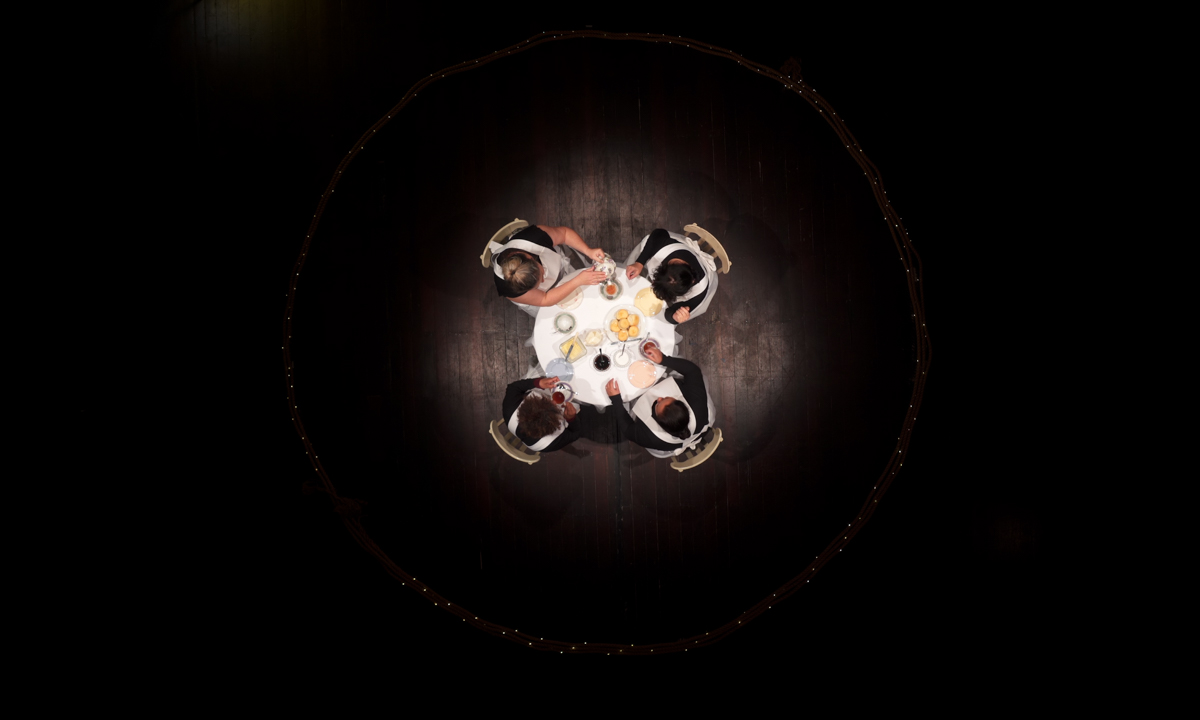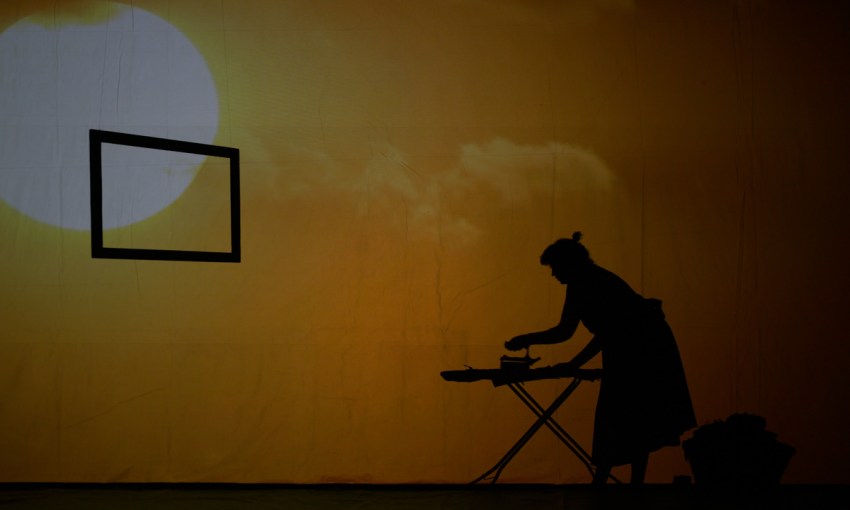Acclaimed Narungga poet and academic Dr Natalie Harkin is challenging South Australia’s colonial history in a Vitalstatistix exhibition set to premiere this month.
Reckoning with South Australia’s colonial past
APRON-SORROW / SOVEREIGN-TEA is a culmination of Dr Natalie Harkin’s long exploration with archival-poetics as an Australian Research Council DECRA fellow.
Drawing from the state’s official archives and oral history to explore and transform Aboriginal women’s domestic labour and servitude, the installation unfolds as a powerful reckoning of South Australia’s recorded colonial history. APRON-SORROW / SOVEREIGN-TEA This article was produced in collaboration with Vitalstatistix.
15—31 October
Vitalstatistix
11 Nile Street, Kaurna Yerta Port Adelaide 5015
FREE – more info
“Twelve individual Memory Stories from women in our community represent the beating heart to this work… These are the embodied intergenerational stories we carry,” Natalie says.
“These stories of servitude are important, often reluctantly disclosed, and held close to our bodies to leave an indelible imprint for our future.
“Despite the significance of these stories in the collective memory of Aboriginal South Australians, this government-orchestrated system of indentured labour remains largely hidden and unacknowledged in the state’s dominant and official public narrative of history.”
Through archival poetics and short video projections created with her Unbound Collective sisters, Simone Ulalka Tur, Ali Gumillya Baker and Faye Rosas Blanch, Natalie hopes to correct South Australia’s colonial record.
Collaborating with Aboriginal women in the community, the evocative work uncovers the buried accounts of their domestic servitude, uncovering the complex reality that was long hidden away.
“Collectively, these stories convey the diversity of Aboriginal women’s domestic service experiences in South Australia, with common intergenerational blood-memory threads spanning love, sorrow, solidarity, resistance and refusal through time,” Natalie says.
“The majority of Aboriginal families I know in South Australia carry intimate histories of domestic service through living memory and intergenerational blood-memory passed on.
“The women who shared their stories for this work are loving and generous. There was uncanny recognition in the shape of each other’s memories as we yarned, and our grandmothers, from forever away and not so long ago, invited themselves to the table.”

Sovereign Tea. Credit: Natalie Harkin with Unbound Collective
The multidisciplinary work will also feature a tryptic of leadlight windows created by her cousin, leadlight artist Sharene Vandenbroak, depicting domestic labour memory stories from their family.
Presented in partnership with Tarnanthi and Vitalstatistix, the program will run for a fortnight in October, premiering at Vitals’ heritage-listed home, the Waterside Workers Hall, on Yerta Bulti Port River. The exhibition will feature a performance event, symposium and artist talk across two weeks.
A sister exhibition, Sovereign Sisters: Domestic Work, will show at Flinders University Museum of Art, curated by Unbound Collective’s Ali Gumillya Baker and exhibition manager Maddie Reece.
Having long established a relationship with Vitals, APRON-SORROW / SOVEREIGN-TEA is the pinnacle of Natalie’s time at the Waterside studio, with the installation organically included in the company’s Bodies of Work program exploring labour rights.
The diverse experimentation rings true to the founding ethos of Vitalstatistix, which was established by a determined and radical trio of Margie Fischer, Ollie Black and Roxxy Bent in 1984, ignited by the group’s desire to create opportunities for women artists in Australia.
The fierce ambition of Margie, Ollie and Roxxy still lie at the crux of Vitals, with the vibrant institution championing artists who create new, innovative and multidisciplinary work, cultivating a place that thrives on community life and contemporary art.
“This is an invitation to lean in close and bear witness,” says Natalie.
“Not only to the oppressive, racialised, gendered, assimilation-based policies of the state, but to the individual and collective power, sorrow, rage and resilience of Aboriginal women, and above all, enduring love.”
For more information on the upcoming Vitalstatistix exhibition APRON-SORROW / SOVEREIGN-TEA, see the website.




